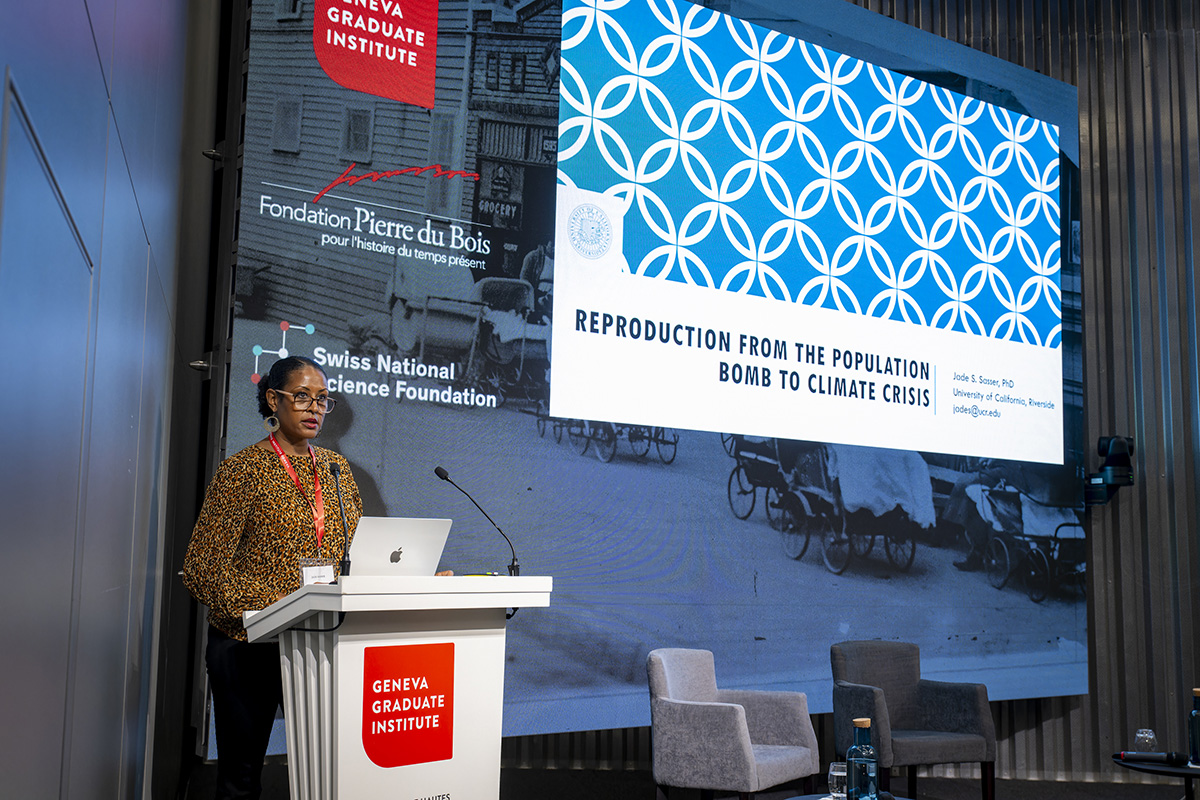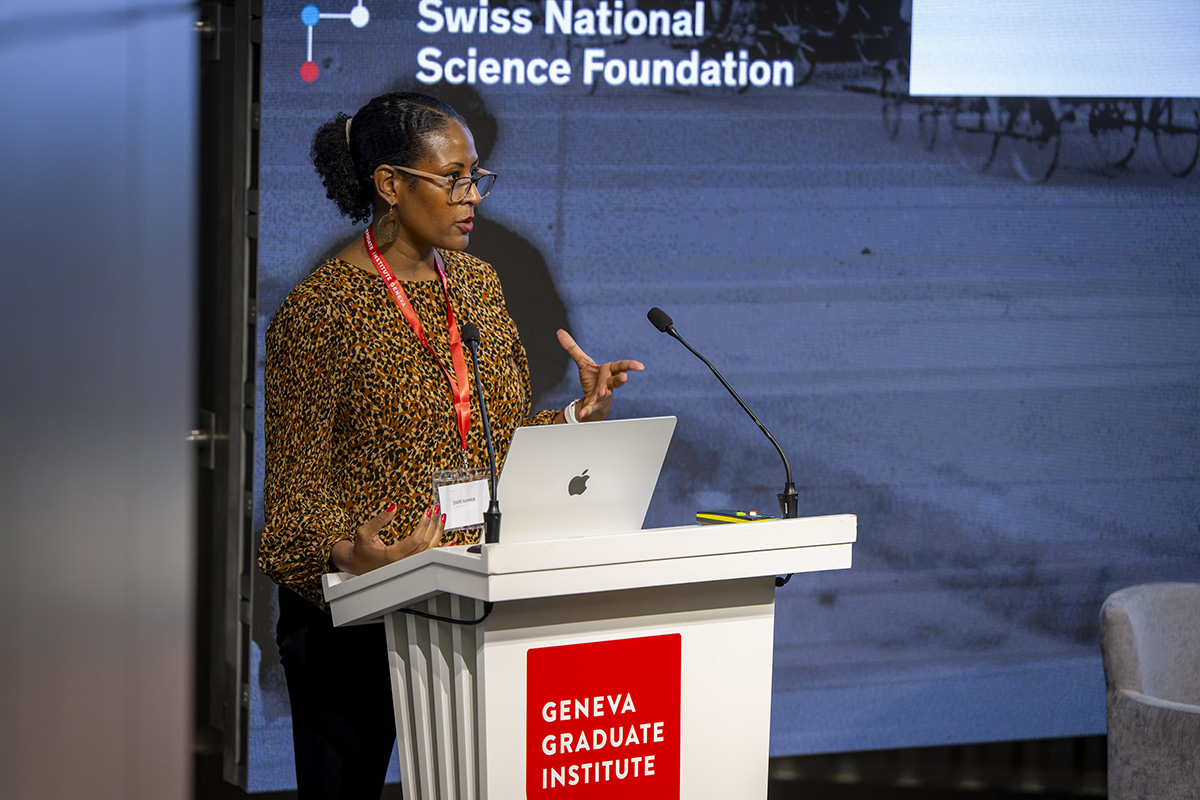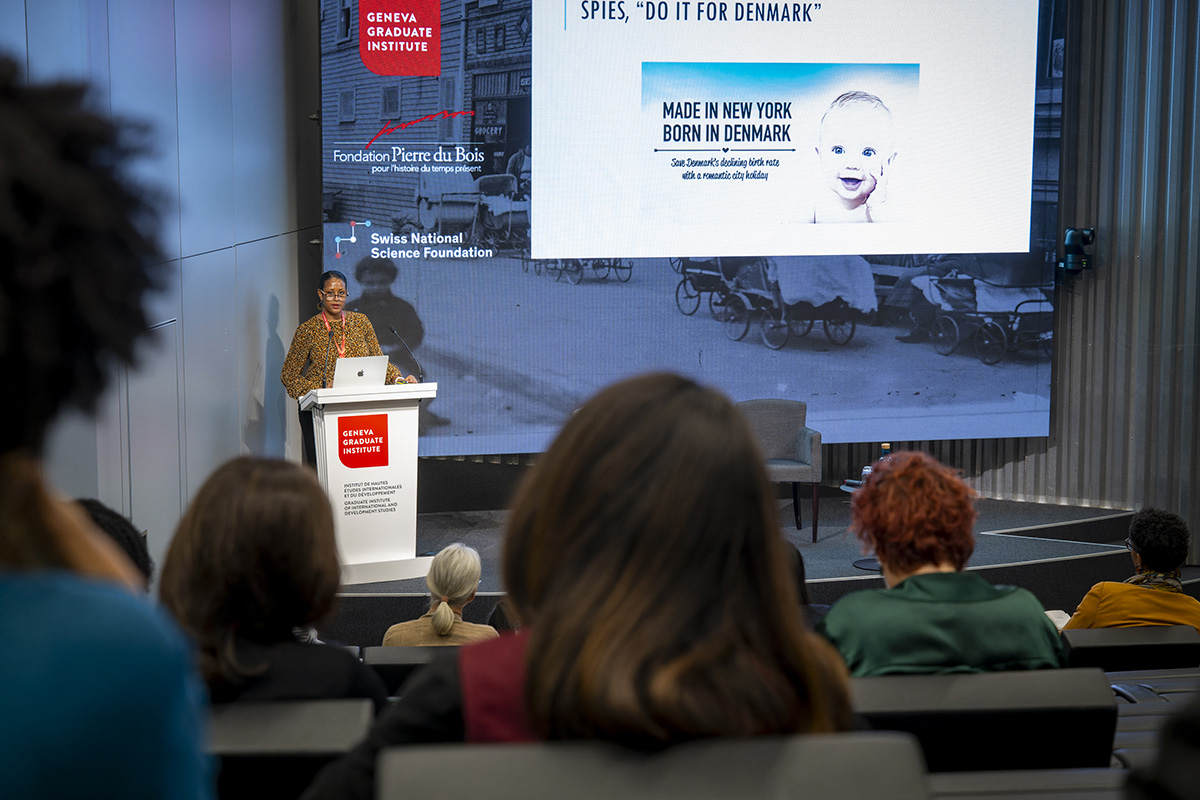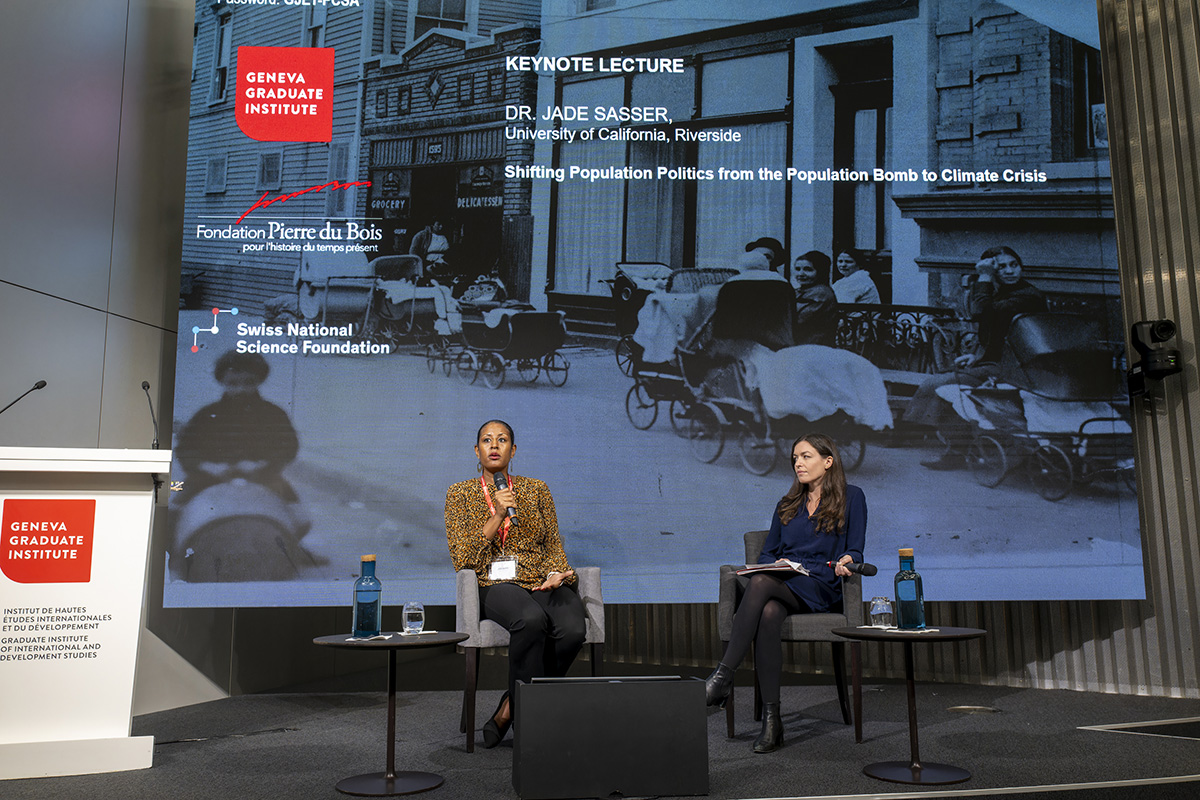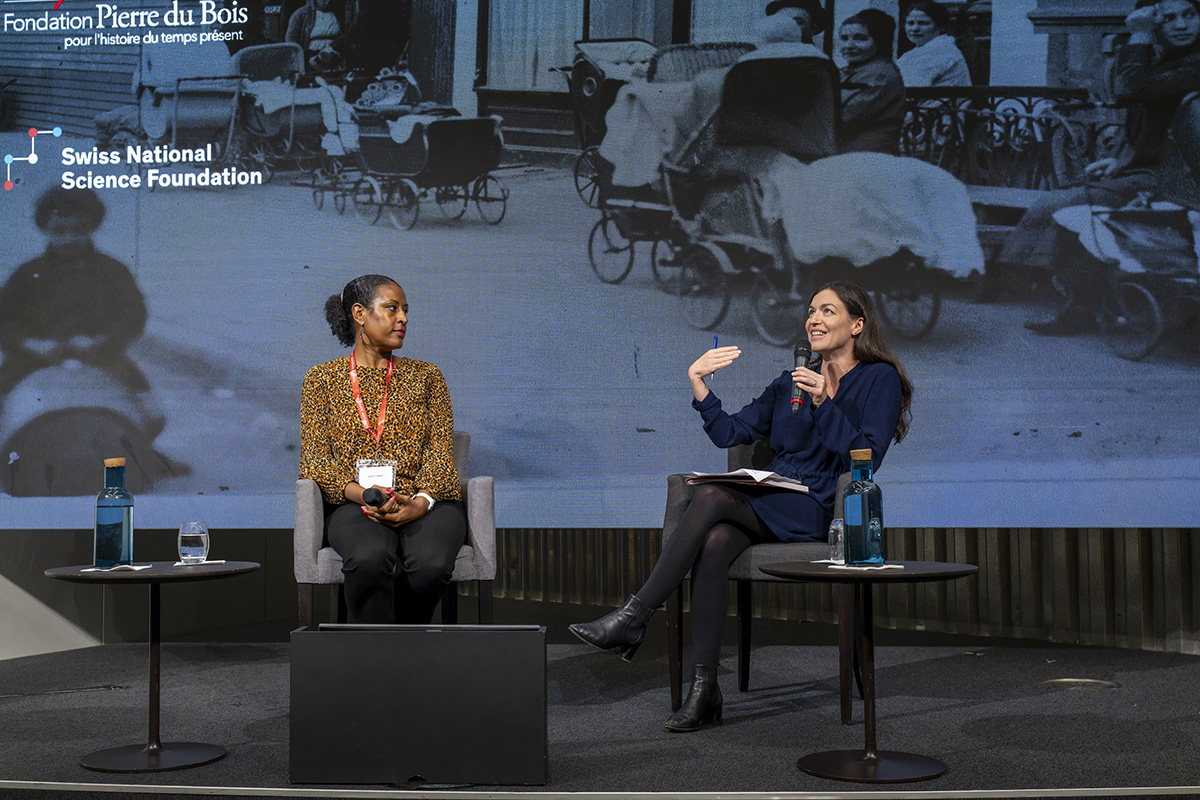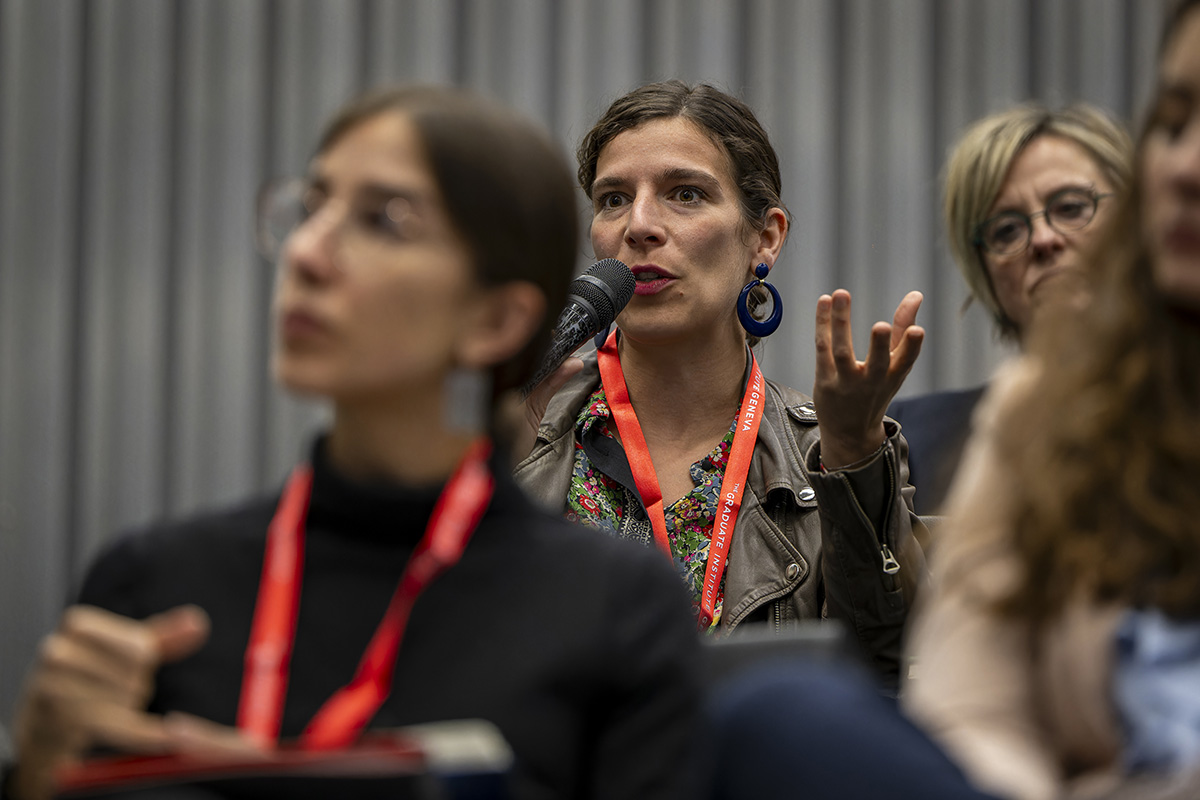Shifting Population Politics, from The Population Bomb to Climate Crisis
Dr. Jade S. Sasser
, – Maison de la paix, chemin Eugène-Rigot 2, 1202 Genève, Auditorium Part B
Dr. Jade S. Sasser is an Associate Professor in the Department of Gender & Sexuality Studies at the University of California, Riverside. Her research explores the relationships between reproductive justice, women’s health, and climate change. Her first book, On Infertile Ground: Population Control and Women’s Rights in the Era of Climate Change, was published in 2018 by NYU Press, and it won the Emory Elliott Book Award. Dr. Sasser has a PhD in Environmental Science, Policy, and Management from University of California, Berkeley; an MA in Cultural Anthropology from UC Berkeley; and an MPH in Global Health from Boston University. Her current book in progress explores how race and climate anxiety are shaping reproductive desires, plans, and futures among young adults.
Keynote abstract
Reproduction from The Population Bomb to Climate Crisis
Women’s sexuality, fertility, and reproduction have long been surveilled on a global scale to reinforce ideas of national sovereignty, stability, and socio-cultural cohesion. Throughout the 20th century, this manifested in the form of population control, or efforts to shape the growth, decline, and movement of people around the world. As top-down population control efforts have fallen out of favor, they have been replaced by bottom-up approaches to reproductive self-management. This “sexual stewardship” draws on decades of conflict, struggle, and negotiation between feminists and international development actors, as well as more recent preoccupations with social justice and youth activism. This paper explores these developments, highlighting the ways environmentalist youth in particular have been centered as both advocates of sexual stewardship and its most important exemplars. From there, it investigates the recent shift from NGO-led efforts to more interior approaches to climate-focused reproductive refusal.

